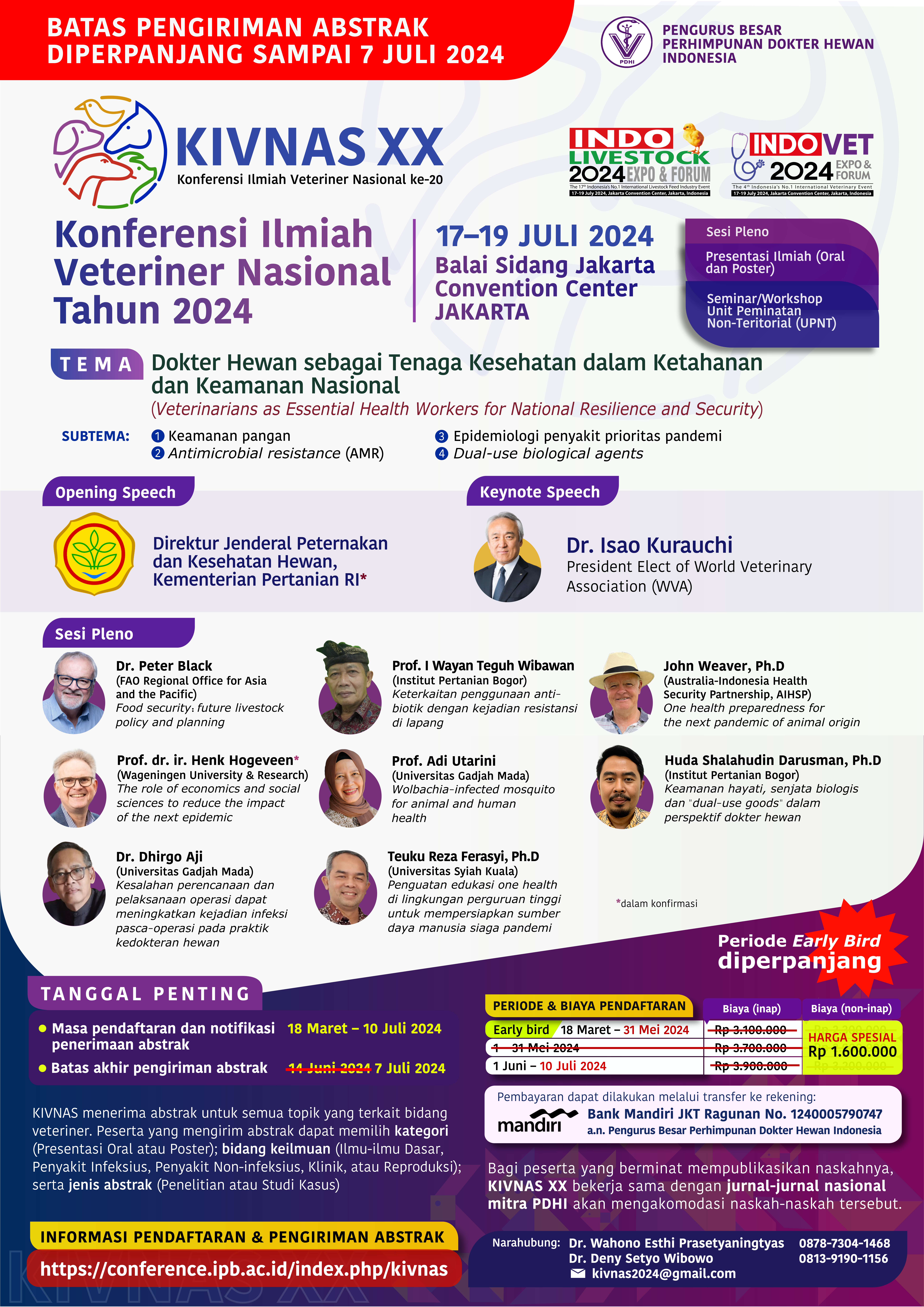The role of economics and social sciences to reduce the impact of the next epidemic
Keywords:
disease epidemics, economic aspect, human behaviour aspect, impact disease outbreaks , animal health systemAbstract
Animal production is a large source of proteins as well as a subsistence for many farmers, worldwide. Disease epidemics have enormous consequences for the farmers and their societies. In recent years, Indonesia has suffered under a large number of disease outbreaks. In general, we do know much the prevention and control of these diseases, for instance regarding biosecurity, monitoring, vaccination, etc. However, much of this knowledge is not used, which makes the extend of an epidemic being the result of human behaviour, rather than a lack of veterinary knowledge. We need to support decision making by getting insight in the human behaviour regarding epidemic diseases as well as in the financial consequences of these diseases. A framework on the usefulness of economic and social sciences will be presented. This is done by reasoning from the animal health system and it consists of 4 elements: 1) studying the (potential) impact of disease outbreaks; the animal disease burden in terms of economics, animal welfare, human health and environmental consequences, 2) identifying the societal drivers of risks of outbreaks and the magnitude of outbreaks; human behaviour and economic circumstances that influence the transmission of diseases, 3) estimating the societal consequences of interventions to mitigate the impact of disease outbreaks as well as to decrease the transmission of diseases, and, 4) insight the potential options and the effectivity thereof to improve measures to decrease the impact of animal disease outbreaks. By a systematic approach in studying the economic and human behaviour aspects regarding transmission, prevention and mitigation of epidemic animal diseases, we will be able to optimize the epidemic preparedness and control at the country, regional and farm level.



